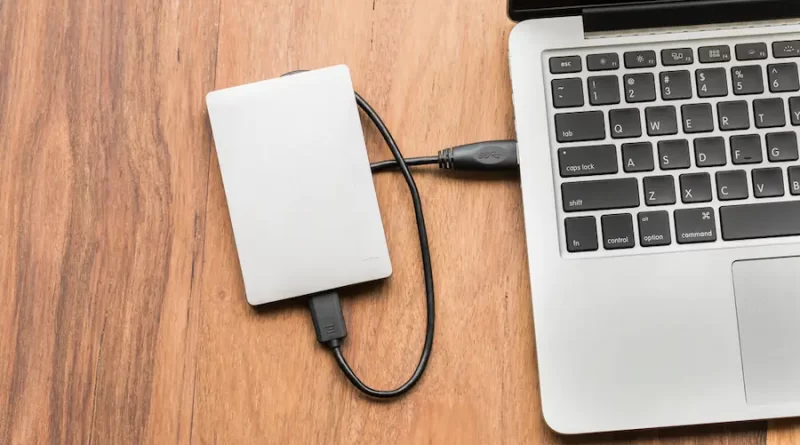
How Long Do Hard Drives Last? 5 Things To Know
How long do hard drives last? This is a common question for people looking for high-quality data storage solutions.
The average lifespan of a hard drive might surprise you. Several factors can affect its longevity, but don’t worry; there are ways to extend its lifespan.
This article will explore the signs of a failing hard drive and provide tips on keeping yours running smoothly for as long as possible. So, let’s dive in and find out how long your hard drive can go!
#1 The Average Lifespan of Hard Drives
On average, high-quality hard drives last around five to ten years before they may start experiencing failures or performance issues. During this time, your hard drive works tirelessly to store and retrieve your valuable data. It spins at incredible speeds, accessing and writing information constantly.
However, as with any mechanical device, wear and tear are inevitable. Over time, the components of your hard drive may begin to degrade, leading to potential failures. Factors such as usage patterns, environmental conditions, and manufacturing quality can also impact the lifespan of your hard drive.
It’s important to regularly back up your data and monitor the health of your hard drive to ensure you can mitigate any potential issues. By staying vigilant and proactive, you can optimise the lifespan of your hard drive and protect your important files.
#2 Factors Affecting Hard Drive Longevity
Usage patterns, environmental conditions, and manufacturing quality can affect how long your hard drive lasts.
How you use your hard drive plays a significant role in its longevity. If you constantly transfer large files or run resource-intensive applications, your hard drive may wear out faster.
Additionally, the temperature and humidity of your environment can affect the lifespan of your hard drive. Extreme heat or moisture can lead to failure or data corruption.
Moreover, the quality of the manufacturing process can determine how durable and reliable your hard drive is. Higher-quality components and better assembly techniques can result in a longer-lasting hard drive.
Considering these factors and taking appropriate measures to protect your hard drive and ensure its longevity is important.
#3 Signs of a Failing Hard Drive
Pay attention to these four key signs to determine if your hard drive is failing.
- First, listen for unusual noises from your hard drive, such as clicking or grinding sounds. These could indicate mechanical issues and shouldn’t be ignored.
- Second, be aware of any sudden and frequent system crashes or freezes. If your computer is experiencing these issues regularly, it could be a sign of a failing hard drive.
- Third, watch out for error messages related to the hard drive, such as ‘disk boot failure’ or ‘drive not recognised.’ These messages suggest that your hard drive is having trouble functioning properly.
- Finally, be vigilant for slow performance and longer loading times. If your computer is noticeably slower than usual, it could be due to a failing hard drive.
If addressed promptly, pay attention to these signs, which could lead to data loss.
#4 How to Extend the Lifespan of Your Hard Drive
To maximise the lifespan of your hard drive, it’s important to implement proactive measures.
First and foremost, make sure to keep your hard drive cool. Excessive heat can cause damage to the internal components, so ensure that your computer is in a well-ventilated area and use cooling pads if necessary.
Regularly backing up your data is another crucial step. By creating duplicate copies of your files on external storage devices or cloud services, you can protect your data in case of a hard drive failure.
A surge protector is also recommended to avoid sudden power outages or voltage fluctuations. Additionally, be cautious when installing new software or downloading files, as malware and viruses can corrupt your hard drive.
Finally, carefully handle your hard drive, avoiding drops or physical shocks that can cause irreversible damage.
#5 When to Replace Your Hard Drive
If you notice any signs of declining performance or frequent errors, consider replacing your hard drive.
When your computer starts running slower than usual, takes longer to boot up, or freezes frequently, it could be a sign that your hard drive is failing.
You may also encounter frequent data corruption, unusual noises coming from your computer, or the infamous ‘blue screen of death.’ These issues can indicate that your hard drive is no longer functioning properly and could fail anytime.
Attention to the signs is important, as a failing hard drive can result in permanent data loss.
If you experience these symptoms, it’s best to back up your important files immediately and look for a replacement hard drive.
So, How Long Do Hard Drives Last?
In conclusion, the average lifespan of a hard drive can vary depending on various factors such as usage, maintenance, and quality.
However, with proper care and regular backups, you can extend the longevity of your hard drive.
It’s important to be aware of the signs of a failing hard drive and promptly replace it when necessary to avoid data loss.
Remember always to back up your important files to ensure their safety.
